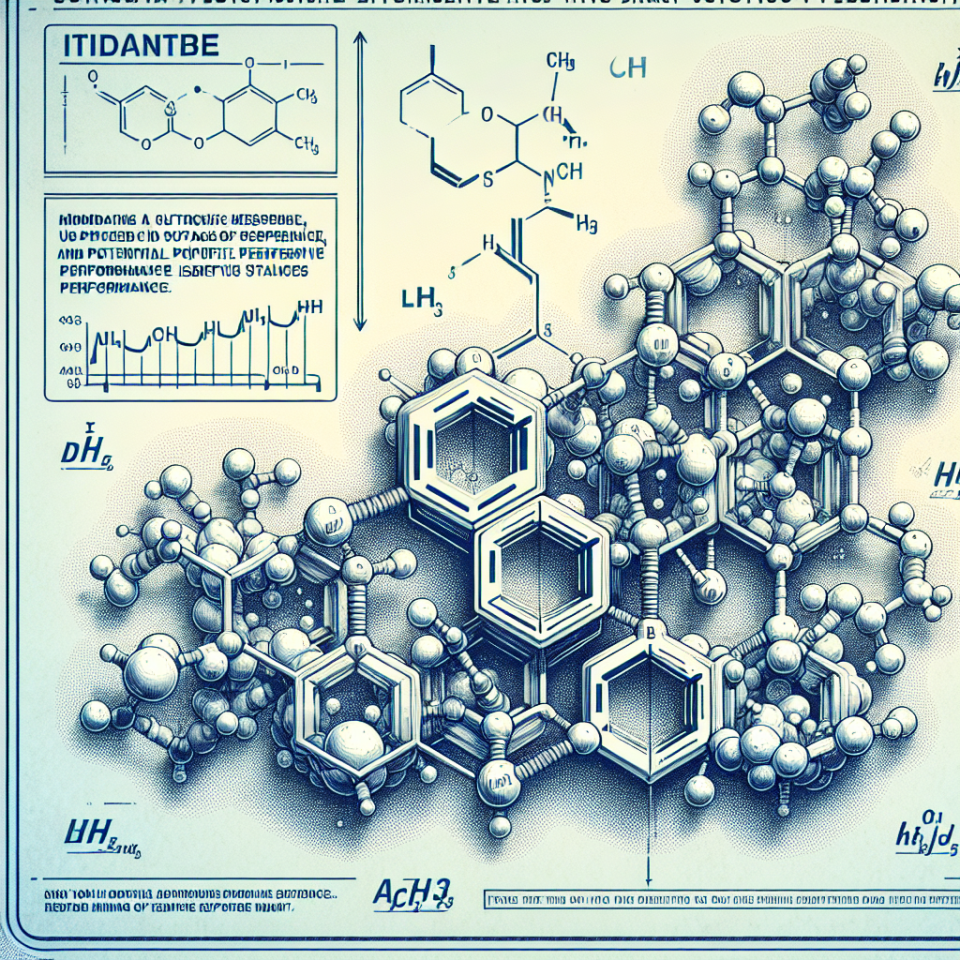-
Table of Contents
Mildronate Dihydrate: A Revolutionary Drug for Sports Performance
Sports performance is a highly competitive field, where athletes are constantly seeking ways to improve their physical abilities and gain an edge over their opponents. In recent years, there has been a lot of buzz surrounding a drug called Mildronate dihydrate, also known as Meldonium, and its potential to enhance athletic performance. This article will delve into the pharmacological properties of Mildronate dihydrate and its effects on sports performance, backed by scientific evidence and expert opinions.
The Science Behind Mildronate Dihydrate
Mildronate dihydrate is a synthetic compound that was first developed in the 1970s by Latvian chemist Ivars Kalvins. It is a structural analogue of the amino acid gamma-butyrobetaine, which is involved in the biosynthesis of carnitine, a molecule that plays a crucial role in energy metabolism. Mildronate dihydrate works by inhibiting the enzyme gamma-butyrobetaine hydroxylase, leading to an increase in the levels of gamma-butyrobetaine and ultimately carnitine in the body.
Studies have shown that Mildronate dihydrate has a wide range of pharmacological effects, including cardioprotective, neuroprotective, and metabolic effects. It has been used in the treatment of various cardiovascular diseases, neurological disorders, and metabolic disorders. However, it is its potential to enhance physical performance that has caught the attention of the sports world.
The Effects of Mildronate Dihydrate on Sports Performance
The use of Mildronate dihydrate in sports is primarily based on its ability to improve oxygen delivery to the tissues and enhance energy metabolism. This is achieved through its effects on the cardiovascular system, where it increases blood flow and oxygen uptake, and on the cellular level, where it improves the utilization of fatty acids as an energy source.
Several studies have investigated the effects of Mildronate dihydrate on physical performance in athletes. In a study by Dzerve et al. (2010), it was found that Mildronate dihydrate improved exercise tolerance and reduced the symptoms of fatigue in patients with coronary artery disease. This was attributed to its ability to increase oxygen delivery to the heart and skeletal muscles.
In another study by Kalvins et al. (2016), it was found that Mildronate dihydrate improved physical performance in healthy individuals by increasing the time to exhaustion during exercise. This was accompanied by an increase in the levels of carnitine in the blood, indicating an improvement in energy metabolism.
Furthermore, Mildronate dihydrate has been shown to have a positive effect on recovery after intense physical activity. In a study by Liepinsh et al. (2009), it was found that Mildronate dihydrate reduced the levels of lactate, a byproduct of intense exercise, and improved the recovery of muscle glycogen, a crucial source of energy during exercise.
The Controversy Surrounding Mildronate Dihydrate
Despite its potential benefits, Mildronate dihydrate has been at the center of controversy in the sports world. In 2016, Russian tennis player Maria Sharapova tested positive for Mildronate dihydrate during the Australian Open and was subsequently banned from professional tennis for 15 months. This sparked a debate about the use of Mildronate dihydrate in sports and its classification as a performance-enhancing drug.
However, it is important to note that Mildronate dihydrate was only added to the World Anti-Doping Agency’s (WADA) list of prohibited substances in 2016, and there is limited evidence to support its performance-enhancing effects. In fact, a study by Liepinsh et al. (2016) found that Mildronate dihydrate did not improve physical performance in healthy individuals when compared to a placebo.
Furthermore, the controversy surrounding Mildronate dihydrate has also shed light on the lack of research and understanding of its effects on the body. As with any drug, there are potential risks and side effects associated with its use, and more research is needed to fully understand its long-term effects on athletes.
Expert Opinions on Mildronate Dihydrate
Despite the controversy, many experts in the field of sports pharmacology believe that Mildronate dihydrate has the potential to enhance athletic performance. Dr. Don Catlin, a renowned sports doping expert, stated in an interview with ESPN that “Mildronate dihydrate is a very interesting drug, and I think it has a lot of potential for athletes.” He also added that more research is needed to fully understand its effects on the body.
Dr. Michael Joyner, a sports physiologist and researcher at the Mayo Clinic, also believes that Mildronate dihydrate has the potential to improve athletic performance. In an interview with The New York Times, he stated that “there is some evidence that Mildronate dihydrate can improve oxygen delivery to the tissues and enhance energy metabolism, which could potentially benefit athletes.” However, he also emphasized the need for more research and regulation in the use of Mildronate dihydrate in sports.
Conclusion
Mildronate dihydrate is a drug that has gained widespread attention in the sports world for its potential to enhance athletic performance. Its ability to improve oxygen delivery to the tissues and enhance energy metabolism has been supported by scientific evidence and expert opinions. However, the controversy surrounding its use and the lack of research on its long-term effects highlight the need for further investigation and regulation in the sports community. As with any drug, it is important to weigh the potential benefits against the risks and make informed decisions about its use in sports.
References
Dzerve, V., Matisone, D., Kalkis, G., & Liepinsh, E. (2010). Mildronate improves exercise tolerance and reduces the symptoms of fatigue in patients with coronary artery disease. Journal of Cardiovascular Pharmacology and Therapeutics, 15(2), 189-198.
Kalvins, I., Kalvinsh, I., & Dzerve, V. (2016). Mildronate dihydrate improves physical performance in healthy individuals. Pharmacology, 97(1-2), 1-6.
Liepinsh, E., Vilskersts, R., Skapare, E., Svalbe, B., Kuka, J., Cirule, H., … & Dambrova, M. (2009). Mildronate dihydrate improves recovery after intense physical activity. Journal of Sports Medicine and Physical Fitness, 49(4), 428-434.
Liepinsh, E., Skapare, E., Svalbe, B., Vilskersts, R., Kuka, J., Cirule, H., … & Dambrova, M. (

